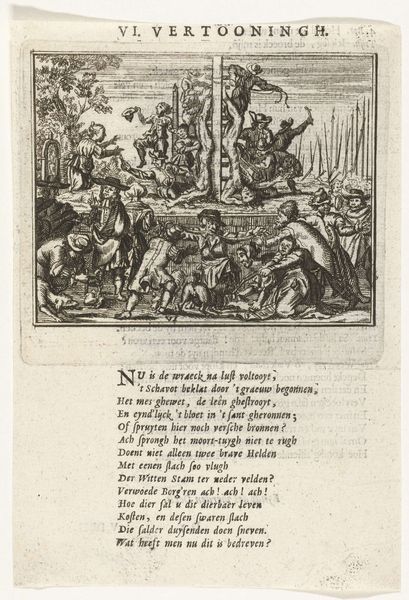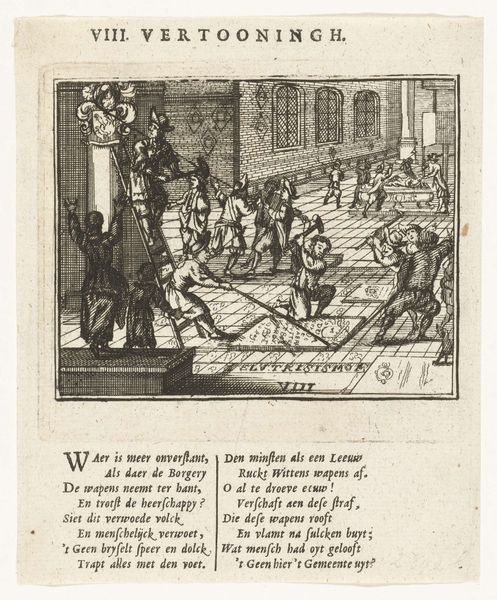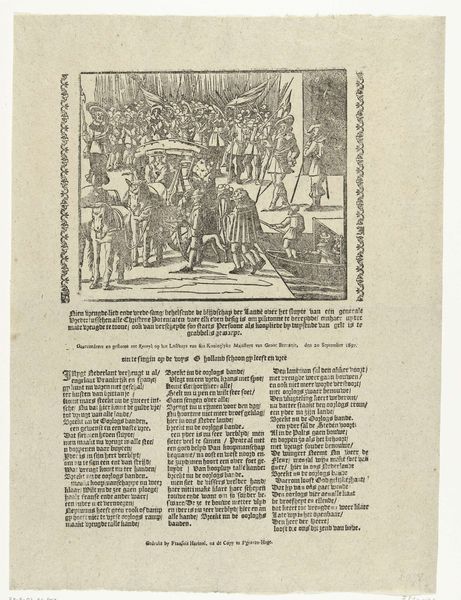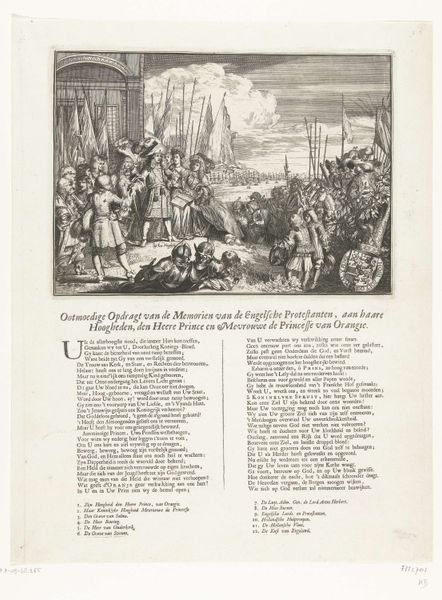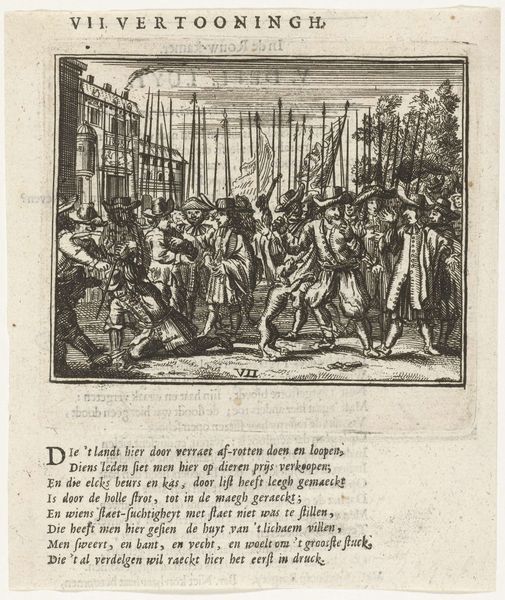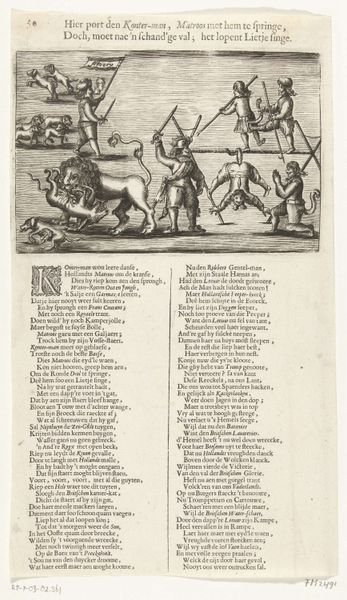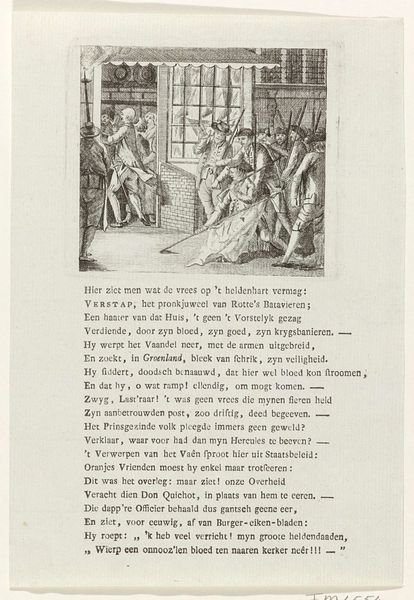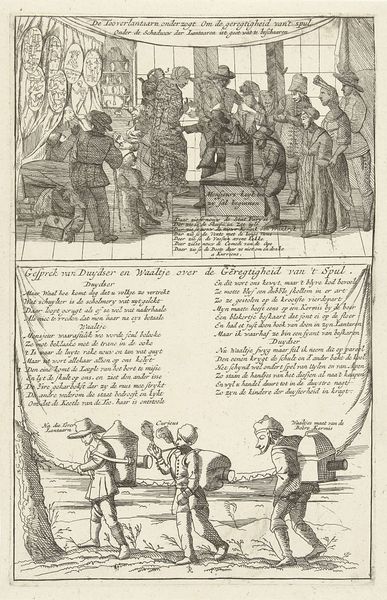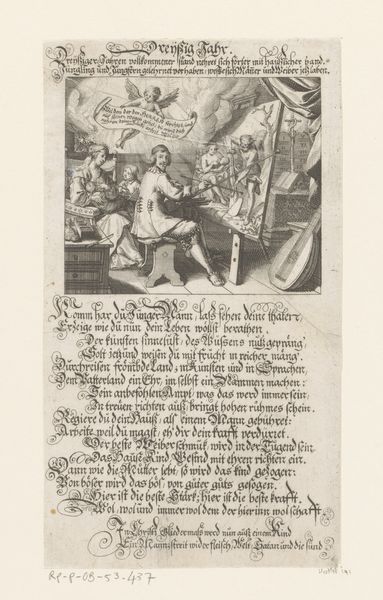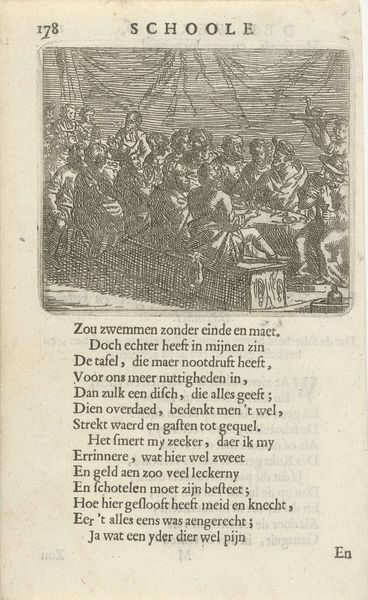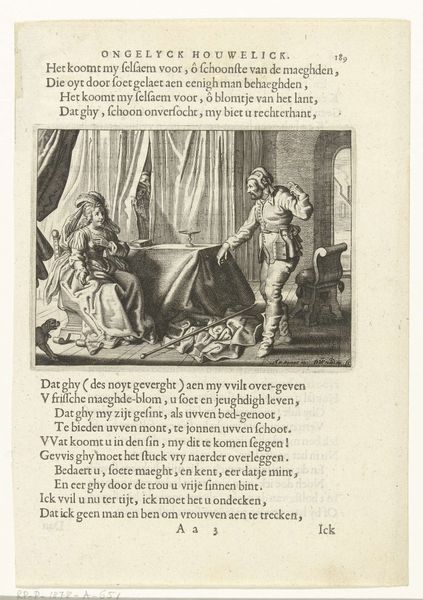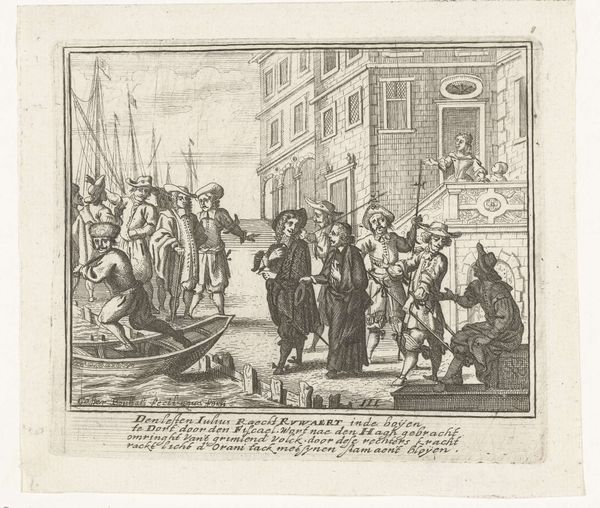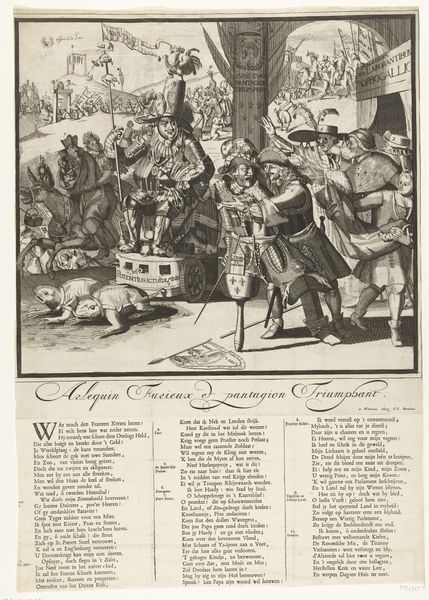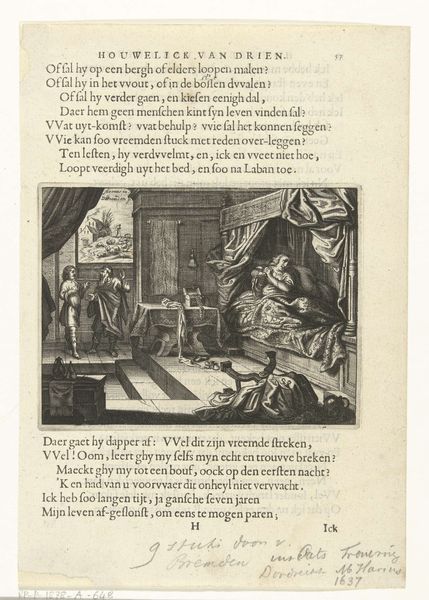
print, engraving
#
narrative-art
#
dutch-golden-age
# print
#
old engraving style
#
genre-painting
#
history-painting
#
engraving
Dimensions: height 167 mm, width 131 mm
Copyright: Rijks Museum: Open Domain
This print, depicting Cornelis de Witt's capture in 1672, was created by an anonymous artist using etching, a printmaking technique reliant on acid to corrode the unprotected parts of a metal surface to create a design. The material qualities of the metal plate deeply influence the aesthetic, the incised lines holding ink to be transferred onto paper. The linear precision made possible by the etching needle allows for a remarkable level of detail, vital for conveying the drama of the scene – De Witt surrounded by an angry mob, his fate hanging in the balance. Prints like these played a crucial role in shaping public opinion during times of political upheaval. Produced in multiples, they were a relatively accessible medium, disseminating images and ideas widely. The work involved in their production, from the skilled labor of the etcher to the distribution networks that circulated them, highlights the intersection of art, politics, and the burgeoning print culture of the 17th century. It reminds us that art is never separate from the social and economic conditions in which it is made.
Comments
No comments
Be the first to comment and join the conversation on the ultimate creative platform.
